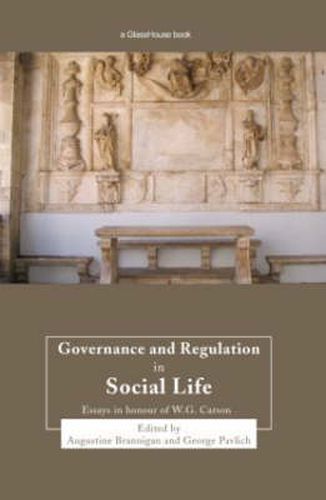Readings Newsletter
Become a Readings Member to make your shopping experience even easier.
Sign in or sign up for free!
You’re not far away from qualifying for FREE standard shipping within Australia
You’ve qualified for FREE standard shipping within Australia
The cart is loading…






Comprising fourteen articles by leading international contributors, including some of the most prominent socio-legal and criminological scholars working in the field, this volume is currently the only work available that critically examines W.G. Carson and his crucial influence in the turn towards sociological approaches to criminology and a criminological interest in governance and social control.
The 1970s witnessed an epiphany in the sociological understanding of crime in Britain. The correctional perspective, which assumed crimes had inherent or essential qualities that distinguished them from other acts, was superseded by the analysis of how social events came to be defined as so harmful and repugnant as to require criminalization. This shift in perspectives was exemplified in W.G. Carson’s work, which combines a Marxist acknowledgement of the imperative for profit with a symbolic interactionist attention to the restraining effect of prestige and status among producers and regulators.
This key work is an essential read for postgraduates and researchers studying and researching in the areas of criminology and law.
$9.00 standard shipping within Australia
FREE standard shipping within Australia for orders over $100.00
Express & International shipping calculated at checkout
Stock availability can be subject to change without notice. We recommend calling the shop or contacting our online team to check availability of low stock items. Please see our Shopping Online page for more details.
Comprising fourteen articles by leading international contributors, including some of the most prominent socio-legal and criminological scholars working in the field, this volume is currently the only work available that critically examines W.G. Carson and his crucial influence in the turn towards sociological approaches to criminology and a criminological interest in governance and social control.
The 1970s witnessed an epiphany in the sociological understanding of crime in Britain. The correctional perspective, which assumed crimes had inherent or essential qualities that distinguished them from other acts, was superseded by the analysis of how social events came to be defined as so harmful and repugnant as to require criminalization. This shift in perspectives was exemplified in W.G. Carson’s work, which combines a Marxist acknowledgement of the imperative for profit with a symbolic interactionist attention to the restraining effect of prestige and status among producers and regulators.
This key work is an essential read for postgraduates and researchers studying and researching in the areas of criminology and law.